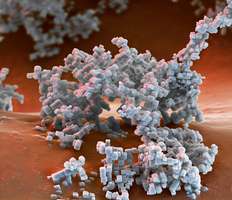- The new plant in Ludwigshafen will double global specialty zeolites production capacity.
- Production is scheduled to begin in 2019.
- The plant will create approximately 25 new jobs.
- Specialty zeolites are used in emissions catalysts for diesel vehicles.

New Plant in Ludwigshafen
BASF is investing in a new production plant for specialty zeolites at its Ludwigshafen, Germany, headquarters. This new facility will double the company's global production capacity for these materials, which are essential for manufacturing state-of-the-art emissions catalysts for both heavy-duty and light-duty diesel vehicles. The plant is scheduled to begin production in 2019, following a topping-out ceremony held on September 20.
Meeting Emissions Regulations
The increased production capacity is driven by rising demand for emissions catalysts, spurred by new regulations worldwide that require more sophisticated systems. Specialty zeolites play a crucial role in enabling the automotive and heavy-duty diesel industries to meet these stringent emissions standards.
Job Creation and Site Expansion
The new plant will create approximately 25 new jobs and will become one of the tallest buildings at the Ludwigshafen site, standing at 83 meters (272 feet) high. This investment underscores the strategic importance of the Ludwigshafen site and its integrated Verbund system.
Global Production and Applications
BASF currently produces specialty zeolites in Ludwigshafen and Seneca, South Carolina (USA), with additional pilot facilities in Ludwigshafen and Beachwood, Ohio (USA). Beyond automotive applications, these zeolites are also valuable in the chemical, petrochemical, and refining sectors.
Specialty Zeolites
Zeolites are crystalline aluminosilicates with various molecular structures found in nature. Specialty zeolites are synthesized under elevated pressure using organic auxiliary agents, making them suitable for advanced industrial applications.

